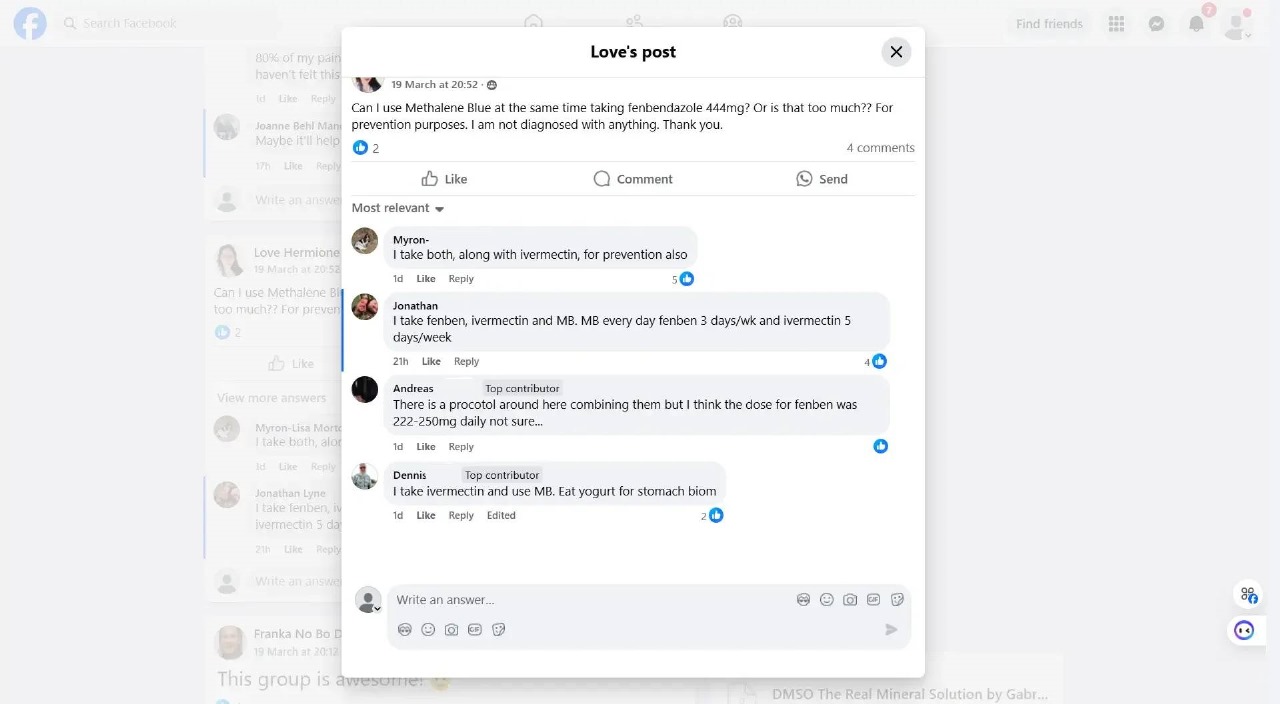Has anyone used methylene blue and fenbendazole together, and what were the results?
Understanding
Methylene Blue (MB) and Fenbendazole (FBZ) are being explored for their potential anti-cancer, antimicrobial, and mitochondrial-supporting properties. While scientific research on their combined use is limited, anecdotal reports from biohacking and integrative medicine communities suggest a variety of experiences—ranging from improved energy and detoxification to mild side effects such as fatigue or brain fog.
Anecdotal Reports & Observed Effects
Increased Energy & Mental Clarity – Some users report enhanced mitochondrial function, resulting in better focus, mental clarity, and overall stamina.
Enhanced Detoxification – MB’s redox modulation combined with FBZ’s antiparasitic activity has reportedly led to improved digestion, clearer skin, and reduced inflammation in some individuals.
Possible Synergy in Cancer Protocols – Experimental users involved in alternative oncology approaches suggest that MB may enhance FBZ’s cellular stress effects, although scientific studies have yet to confirm this interaction.
Reported Side Effects
Mild Detox Reactions (Herxheimer Effect) – Fatigue, mild headaches, and nausea are commonly reported, likely due to increased cellular detox.
Temporary Brain Fog or Restlessness – Higher doses of MB, particularly when combined with FBZ, may lead to transient overstimulation.
Liver Stress & Metabolic Load – Both compounds are metabolized by liver enzymes (especially CYP450), and combining them over extended periods could strain detoxification systems.
Best Practices Based on User Experiences
Timing: Users commonly take MB in the morning and FBZ in the evening to avoid potential metabolic competition.
Stacking: Many users tolerate the combination better when paired with antioxidants such as Vitamin C, Glutathione, or NAC.
Monitoring: Start with lower doses, increase gradually, and track energy, mood, digestion, and sleep for changes.
Final Thoughts
User-reported experiences suggest possible synergistic benefits when combining Methylene Blue and Fenbendazole, especially in the areas of detoxification, energy, and immune modulation. However, due to the lack of robust scientific studies on their interaction, this combination should be approached cautiously. Start low, support liver health, stay hydrated — especially if used for chronic conditions or alongside other therapies.
For shared user experiences and peer discussions:
Join the Methylene Blue Community
3 FAQs
Do MB and Fenbendazole work well together?
Some users report synergy, particularly in alternative protocols, but both compounds can increase oxidative stress or strain liver detox pathways. Monitoring is advised.
What’s the best way to take MB & Fenbendazole together?
Take MB in the morning and FBZ in the evening. Adding antioxidants like Vitamin C or Glutathione may improve tolerance.
Can we take both MB & Fenbendazole together?
Yes, you can. Just monitor for oxidative stress and liver detox burden. Proper hydration, periodic breaks, and antioxidant support are essential.
🔗 Sources:
Some comments from our users:

Topic Participants
Karl P
Sticky Posts
Which brand of Methylene Blue should I purchase?
Background We receive product photos from members asking if the brand is reliable/safe. Unfortunately, there has been a rise in dubious MB brands of late - so we have tried to prepare a checklist to assist. It is not comprehensive, but it's a guide. WhenWhat is the recommended Methylene Blue Dosage to improve memory & for Anti Aging?
Background There are multiple different dosages that are discussed as suitable dosages to be used - this confuses people. The reason for multiple doses is because : It is a 120 year old drug and at different times it was used for different purposes at